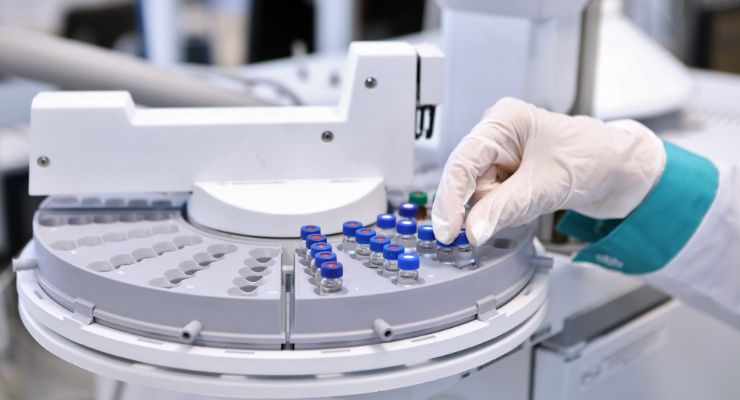02.20.24
Many herb/botanical products aren’t being tested for the full list of pesticides outlined in United States Pharmacopoeia (USP) standards, according to Alkemist Labs.
After the third-party testing company added pesticide testing to its suite of services in 2022, it learned that it was common for some third-party labs to leave out tests for two types of pesticides in their USP panel tests. The two pesticides were inorganic bromide and dithiocarbamates, which require extra testing steps, and are required by USP <561> standards.
Alkemist advised that companies make sure they’re getting the full USP <561> panel of tests, which lists 70 reportable compounds covering 121 individual analytes, though there’s nothing in regulations that requires using this pesticides list.
In 2023 data, Alkemist discovered that 47% of samples it tested for pesticides had inorganic bromide at levels higher than the USP <561> threshold. Alkemist previously warned the industry about widespread lack of testing for inorganic bromide and dithiocarbamates, and after seeing so many failings in 2023, was compelled to issue another warning.
To cover the entire USP Panel requires four separate assays using two different instruments:two runs each of UPLC-MS/MS and APGC-MS/MS, which is extra time and expense. Sometimes the cost to the manufacturer is higher if those two last analytes are added to the test run.
“I can try to understand the temptation to leave those out because of the time and processing you need to run it and the expenses incurred as a result,” said Elan Sudberg, CEO of Alkemist Labs. “You need to change over the same instrument twice, each time to search for one more analyte, which can take half a day and decrease your bottom line. But given what we are seeing, it’s imperative that companies make sure their labs are doing this screening.”
In testing reports, results should include inorganic bromide and dithiocarbamates measured and reported as carbon disulfide (CS2). If these compounds are omitted, then USP <561> pesticides testing is incomplete. If one sees the phrase “USP <561> modified,” they should ask if that means newer instrumentation is being used, or if the list of substances being screened has been shortened, according to Alkemist Labs.
After the third-party testing company added pesticide testing to its suite of services in 2022, it learned that it was common for some third-party labs to leave out tests for two types of pesticides in their USP panel tests. The two pesticides were inorganic bromide and dithiocarbamates, which require extra testing steps, and are required by USP <561> standards.
Alkemist advised that companies make sure they’re getting the full USP <561> panel of tests, which lists 70 reportable compounds covering 121 individual analytes, though there’s nothing in regulations that requires using this pesticides list.
In 2023 data, Alkemist discovered that 47% of samples it tested for pesticides had inorganic bromide at levels higher than the USP <561> threshold. Alkemist previously warned the industry about widespread lack of testing for inorganic bromide and dithiocarbamates, and after seeing so many failings in 2023, was compelled to issue another warning.
To cover the entire USP Panel requires four separate assays using two different instruments:two runs each of UPLC-MS/MS and APGC-MS/MS, which is extra time and expense. Sometimes the cost to the manufacturer is higher if those two last analytes are added to the test run.
“I can try to understand the temptation to leave those out because of the time and processing you need to run it and the expenses incurred as a result,” said Elan Sudberg, CEO of Alkemist Labs. “You need to change over the same instrument twice, each time to search for one more analyte, which can take half a day and decrease your bottom line. But given what we are seeing, it’s imperative that companies make sure their labs are doing this screening.”
In testing reports, results should include inorganic bromide and dithiocarbamates measured and reported as carbon disulfide (CS2). If these compounds are omitted, then USP <561> pesticides testing is incomplete. If one sees the phrase “USP <561> modified,” they should ask if that means newer instrumentation is being used, or if the list of substances being screened has been shortened, according to Alkemist Labs.




























